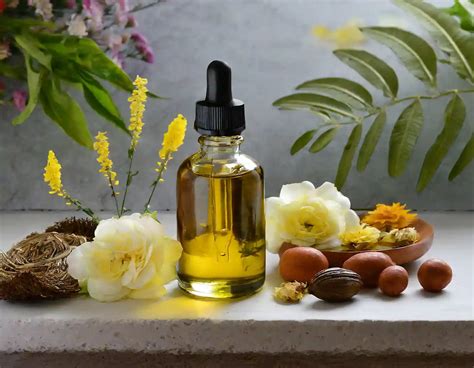Carrier oils are the base of many essential oil blends. They are used to dilute essential oils, making them safe for topical application. Carrier oils also help to extend the shelf life of essential oils and make them easier to apply.

There are many different types of carrier oils available, each with its own unique properties. Some of the most popular carrier oils include:
- Jojoba oil: Jojoba oil is a light, non-greasy oil that is similar to the sebum produced by the skin. It is a good choice for all skin types, including sensitive skin.
- Coconut oil: Coconut oil is a solid oil that melts at body temperature. It is a good choice for dry skin and hair.
- Sweet almond oil: Sweet almond oil is a light, nutty-scented oil that is good for all skin types. It is a good choice for massage and aromatherapy.
- Avocado oil: Avocado oil is a rich, creamy oil that is good for dry and mature skin. It is also a good source of vitamins A, D, and E.
- Argan oil: Argan oil is a luxurious oil that is good for all skin types. It is a good source of antioxidants and essential fatty acids.
- Rosehip oil: Rosehip oil is a light, dry oil that is good for all skin types. It is a good source of vitamin C and essential fatty acids.
- Tamanu oil: Tamanu oil is a thick, dark green oil that is good for acne-prone skin. It is a good source of antibacterial and anti-inflammatory properties.
- Hemp seed oil: Hemp seed oil is a light, nutty-scented oil that is good for all skin types. It is a good source of essential fatty acids and omega-3s.
- Grapeseed oil: Grapeseed oil is a light, non-greasy oil that is good for all skin types. It is a good source of antioxidants and vitamin E.
- Apricot kernel oil: Apricot kernel oil is a light, sweet-scented oil that is good for all skin types. It is a good source of vitamins A and E.
- Sunflower oil: Sunflower oil is a light, non-greasy oil that is good for all skin types. It is a good source of vitamin E and linoleic acid.
- Olive oil: Olive oil is a thick, rich oil that is good for dry skin and hair. It is a good source of vitamins A, D, and E.
How to Choose the Right Carrier Oil
The best carrier oil for you will depend on your individual skin type and needs. If you have dry skin, you will need a heavier oil, such as coconut oil or avocado oil. If you have oily skin, you will need a lighter oil, such as jojoba oil or grapeseed oil.
You can also choose a carrier oil based on its scent. Some carrier oils, such as lavender oil and chamomile oil, have a calming effect. Others, such as peppermint oil and rosemary oil, have an invigorating effect.
Benefits of Carrier Oils
Carrier oils offer a number of benefits, including:
- Moisturizing: Carrier oils help to keep the skin hydrated and prevent dryness.
- Anti-inflammatory: Some carrier oils, such as tamanu oil and rosehip oil, have anti-inflammatory properties that can help to soothe irritated skin.
- Antibacterial: Some carrier oils, such as tea tree oil and oregano oil, have antibacterial properties that can help to fight acne and other skin infections.
- Antioxidant: Many carrier oils, such as argan oil and grapeseed oil, are rich in antioxidants that can help to protect the skin from damage caused by free radicals.
- Soothing: Some carrier oils, such as lavender oil and chamomile oil, have a calming effect that can help to reduce stress and anxiety.
How to Use Carrier Oils
Carrier oils can be used in a variety of ways, including:
- Topical application: Carrier oils can be applied directly to the skin, either alone or in combination with essential oils.
- Massage: Carrier oils can be used as a massage oil, either alone or in combination with essential oils.
- Aromatherapy: Carrier oils can be used in aromatherapy, either in a diffuser or in a bath.
- Hair care: Carrier oils can be used as a hair oil, either alone or in combination with essential oils.
Common Mistakes to Avoid
There are a few common mistakes to avoid when using carrier oils. These include:
- Using too much oil: Using too much carrier oil can clog the skin and lead to breakouts.
- Using the wrong oil for your skin type: Using the wrong carrier oil for your skin type can lead to dryness or irritation.
- Not diluting essential oils: Essential oils are highly concentrated and can be irritating if they are not diluted with a carrier oil.
- Storing carrier oils improperly: Carrier oils should be stored in a cool, dark place to prevent them from going rancid.
Frequently Asked Questions
Here are some of the most frequently asked questions about carrier oils:
- What is the best carrier oil for dry skin? The best carrier oil for dry skin is coconut oil or avocado oil.
- What is the best carrier oil for oily skin? The best carrier oil for oily skin is jojoba oil or grapeseed oil.
- Can I use carrier oils on my hair? Yes, carrier oils can be used as a hair oil, either alone or in combination with essential oils.
- How do I store carrier oils? Carrier oils should be stored in a cool, dark place to prevent them from going rancid.
- Can I use carrier oils without diluting them? No, essential oils should always be diluted with a carrier oil before applying them to the skin.
- What is the difference between a carrier oil and a base oil? A carrier oil is a vegetable oil that is used to dilute essential oils. A base oil is a mineral oil that is used to dilute essential oils.
